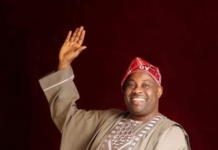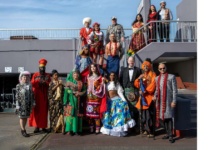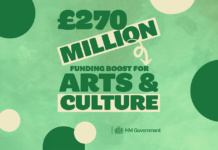The first major UK exhibition dedicated to contemporary African fashion is a major sensation at the Brighton Museum & Art Gallery.

Exploring fashion and style in four cities at the compass points of the African continent – Casablanca in Morocco, Lagos in Nigeria, Nairobi in Kenya and Johannesburg in South Africa – Fashion Cities Africa considers recent and contemporary fashion practices in these distinctive metropoles, from couture to street style.
The exhibition focuses on the style choices of individual ‘fashion agents’ from each city; from designers and stylists to photographers and bloggers.
Helen Mears, the Museum’s Keeper of World Art, Martin Pel, its Curator of Fashion & Textiles, Africa fashion specialists Hannah Azieb Pool and Helen Jennings and researcher Harriet Hughes visited the cities in summer 2015* to explore their fashion scenes and identify key players.
Helen Mears says: “There’s been a surge of interest in contemporary African art and design in Europe and the US in recent years, but this is the fi rst major UK exhibition dedicated to contemporary African fashion. We want to reveal the diversity that exists across the continent – and within single cities – and show that wax print is only part of the story of African fashion. “Each of the cities featured has its own fashion scene: in some cases emergent, in others more established. Some African designers are now major players in international fashion, while others are experimenting creatively in the interface between global fashion and local identities.
“The exhibition aims to provide a snapshot of fashion practices in four specifi c cities and an introduction to some of the stories behind the style, whether it’s the widespread practice of tailoring or the impact of the huge market for second-hand European clothes.” The exhibition will occupy three large galleries and include diverse apparel from couture to street style, alongside images, fi lm, sound and even a reconstructed tailor’s workshop evoking the drama, creativity and dynamism of the distinctive cities.
Highlights include: ·
New commissions, including by Nairobi-based brother and sister duo 2Many Siblings (http://2manysiblings. tumblr.com/) ·
Controversial high-fashion outfits worn by one of Kenya’s hottest bands, Sauti Sol (MTV Europe’s Best African Act 2014) ·
Garments and accessories associated with The Sartists, a Johannesburg-based creative collective documenting their lives and style in post-apartheid South Africa (https://instagram.com/thesartists) ·
Exquisite hand-crafted ‘caftan couture’ pieces by Casablanca-based designer Zhor Raïs ·
Apparel by Maki Oh (TBC), the internationally acclaimed Lagos-based label worn by fi gures including Michele Obama A parallel project, undertaken by members of some of Brighton & Hove’s African diaspora communities, will explore the relationship between fashion, identity and the African continent from a local perspective. Powerful images from the project, which will be co-ordinated by Sarah Naomi Lee, will accompany the exhibition.
Fashion Cities Africa is part of the wider project Fashioning Africa, supported by the Heritage Lottery Fund through the Collecting Cultures programme, which supports strategic collecting projects for museums, libraries and archives.
Brighton Museum & Art Gallery already holds an important collection of historical African textiles, mostly gathered 1880-1940. Thanks to National Lottery players, Fashioning Africa researches recent developments and establish an African textile and fashion collection representing 1960-2000.
Running until 2017, the project has appointed a collecting panel from BAME and fashion communities, and is been delivered in partnership with the University of Brighton and the Sussex Africa Centre at the University of Sussex. Fashion Cities Africa is also accompanied by a book of the same name, edited by Hannah Azieb Pool with contributions by Helen Jennings (Intellect, 2016, £20).
This showcases street styles in the four cities through images of their fashion agents by high-profi le fashion photographers (Sarah Waiswa, Victor Dlamini, Deborah Benzaquen and Lakin Ogunbanwo), accompanied by profiles and essays.









